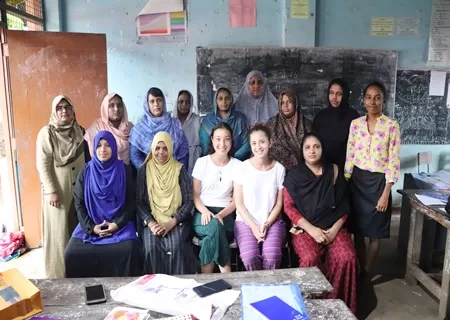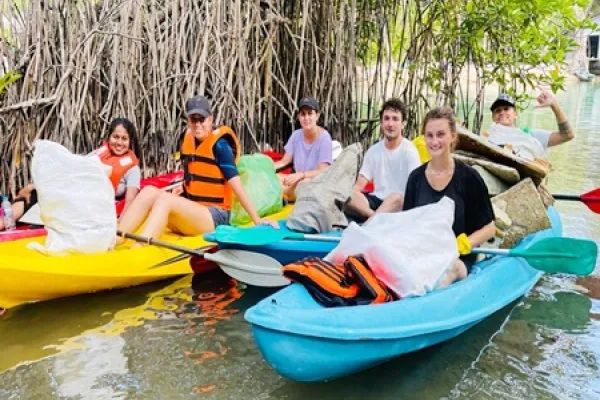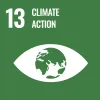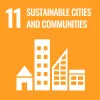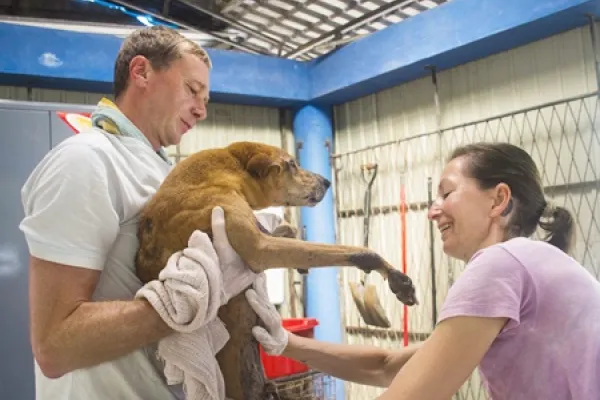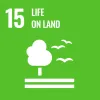Overview
El objetivo principal de este proyecto es dotar a las mujeres rurales pobres de Sri Lanka de las habilidades necesarias para la vida y el idioma inglés, de modo que puedan crecer personalmente, aumentar su confianza y autoestima, interactuar con sus familias e hijos de manera más eficaz en el hogar y tener más posibilidades de conseguir empleo en el futuro. Por diversas razones sociales y económicas, la mayoría de estas mujeres nunca han tenido la oportunidad de adquirir estas habilidades y seguir una carrera profesional exitosa; por lo tanto, es imperativo que este servicio esté disponible para ellas a fin de apoyar su desarrollo y bienestar.
Antecedentes del Programa
En este proyecto, trabajamos habitualmente con mujeres rurales de Sri Lanka, que son uno de los sectores más vulnerables de la sociedad. La situación de estas mujeres ha estado fuertemente condicionada por la cultura tradicional, la historia colonial y las políticas posteriores a la independencia.
No es ningún secreto que los estereotipos de género afectan negativamente a las mujeres, en particular en las comunidades rurales de los países en desarrollo como Sri Lanka. En este país, las mujeres siguen siendo consideradas, en el mejor de los casos, “esposas dependientes” o “proveedoras de ingresos adicionales”. Las responsabilidades familiares tradicionales de la mujer, en particular las de madre, esposa y ama de casa, las limitan en su elección de empleo, al igual que las actitudes de su familia y de la sociedad hacia determinados tipos de empleo.
La mayoría de las mujeres de Sri Lanka saben leer y escribir en cingalés o tamil, las dos principales lenguas locales del país. Esto se debe a que en la década de 1950 la educación primaria, secundaria y superior, incluida la universitaria, se hizo gratuita y se trasladó del inglés a las lenguas locales. Esto condujo a una rápida expansión de las oportunidades educativas entre las mujeres. Los padres ya no tenían que elegir si invertir en la educación de sus hijos o hijas. Las tasas de participación educativa aumentaron rápidamente entre las mujeres y las diferencias de género disminuyeron marcadamente en la década de 1970. A pesar de esto, las tasas de abandono escolar fueron más altas entre las mujeres, especialmente en los barrios, asentamientos y aldeas de bajos ingresos.
En 1983, estalló en Sri Lanka una guerra civil de gran magnitud que duró 26 años y terminó en 2009. Esto provocó importantes trastornos sociales y traumas. El gasto en el sector social se redujo debido al aumento del coste financiero de la guerra a finales de los años 1980 y 1990. Como resultado, se produjo un deterioro de la calidad de los servicios de salud y educación que afectó negativamente a la calidad de vida de las mujeres y sus familias. Muchas mujeres se vieron obligadas a abandonar sus empleos estables en el sector formal para dedicarse a actividades económicas marginales y a un trabajo por cuenta propia inviable. Diversos estudios han demostrado que, en el caso de las mujeres rurales pobres, la calidad de vida y las condiciones de empleo se deterioraron más durante esas tres décadas y las empujaron al desempleo o a trabajos poco cualificados. El tsunami de 2004 también contribuyó a provocar daños a gran escala en la región, lo que deterioró aún más las perspectivas de empleo y la calidad de vida de las mujeres y sus familias.
El empoderamiento de las mujeres puede adoptar muchas formas, y hemos optado por centrarnos en impartir educación en inglés a nivel de base como herramienta para dotar a estas mujeres de mayor confianza y hacerlas más empleables (en particular en el creciente sector del turismo internacional, donde tener conocimientos prácticos de inglés es más o menos obligatorio para conseguir un empleo decente), al tiempo que desarrollan aún más sus habilidades básicas para la vida y el idioma. La mayoría de las mujeres que participan en este proyecto tenían poca o ninguna experiencia o familiaridad con el idioma inglés antes de unirse al proyecto. Provienen de familias de bajos ingresos que han sufrido más durante los tiempos turbulentos del pasado reciente. Muchas de ellas se han casado a temprana edad y nunca han tenido la oportunidad de seguir una carrera viable.
Horario de trabajo voluntario
Horario de trabajo voluntario
- Sábado: Llegada + Visita a la casa + Sesión de formación inicial (siempre que los participantes vengan por la tarde o de lo contrario se hará el domingo)
- Domingo: Visita de familiarización con el barrio
- De lunes a viernes: Trabajo voluntario
- Desayuno: 06:30 am - 8:30 am
- Almuerzo: entre las 12:30 y las 13:30 horas.
- Planificación de la lección: 13:00 a 15:00 horas
- Sesiones para mujeres: de lunes a jueves de 15 a 17.30 h.
- Viernes: Planificación para el lunes
- Cena: 18:30 - 19:45
Nota: El horario puede variar dependiendo de las circunstancias locales y puede ser cambiado por los coordinadores debido a circunstancias inevitables.
Funciones y responsabilidades de los voluntarios
Funciones y responsabilidades de los voluntarios
Como voluntario del Proyecto de Empoderamiento de la Mujer, participarás en las siguientes tareas:
Enseñanza de inglés a nivel básico a mujeres en grupos pequeños y medianos por las tardes.
Prepararse para cada sesión centrándose en las necesidades específicas del grupo.
Ayude al personal a planificar las lecciones y también descubra formas creativas de enseñar.
Centrarse más en el inglés comunicativo (que en la lectura y la escritura) para pulir su gramática.
Emplee diversas técnicas, como el juego de roles, para maximizar el impacto práctico de esta iniciativa.
Las sesiones de enseñanza pueden realizarse por la mañana o por la tarde, durante unas 2 o 3 horas cada una. Cada sesión se llevará a cabo en un ambiente cómodo y cerrado con grupos pequeños de 5 a 20 mujeres rurales. Las clases se programan 4 días a la semana y se dedica un día específico a la planificación de las lecciones, donde las voluntarias planifican las sesiones y preparan los materiales necesarios para las lecciones con antelación. Es importante adaptarse a las circunstancias del terreno y ser flexible. El coordinador de educación acompañará a las voluntarias al lugar del proyecto y las guiará al impartir las lecciones y planificarlas.
Los voluntarios también pueden recibir ayuda de nuestro personal para planificar temas/clases y formas creativas de enseñar, pero la planificación y la enseñanza de las clases son, en última instancia, responsabilidad de los propios voluntarios. Las clases se centrarán más en el inglés hablado (para maximizar el impacto) y también incluirán sesiones de gramática básica. Empleamos diversas técnicas, como juegos de roles, para maximizar el impacto práctico de esta iniciativa.
Project Requirement
Project Requirement
Los voluntarios que se unan al Programa de Empoderamiento de la Mujer deben tener entre 18 y 60 años al momento de unirse al proyecto. Deben tener una mente abierta y una actitud flexible para trabajar en un entorno nuevo y diferente. El voluntario debe aportar energía y entusiasmo para marcar la diferencia. Los participantes deben estar en forma y saludables al momento de unirse al programa. Los participantes no deben tener antecedentes penales y deben proporcionar un informe de verificación de antecedentes penales limpio. Solo se aceptan voluntarias mujeres en este programa.
Schedule a Google Meet with a Program Advisor
Interested in our programs? We're here to provide expert guidance
- Get Detailed Info
- 20 min One -on-One meeting
- Get expert advise
- Application Guidance
Photo Gallery
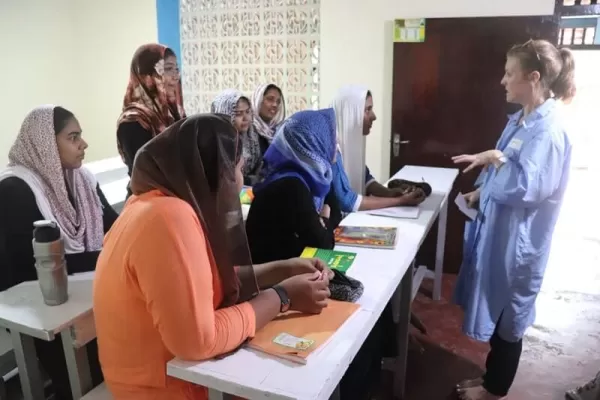
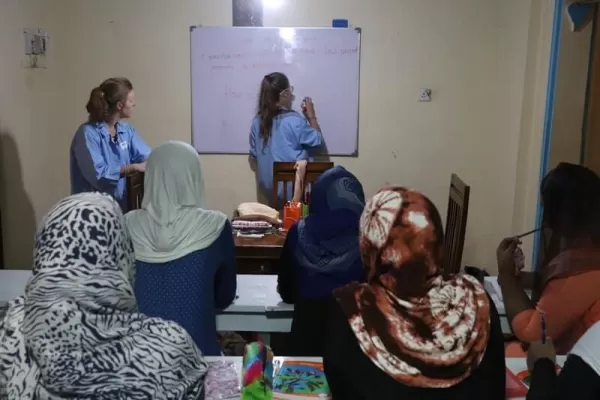
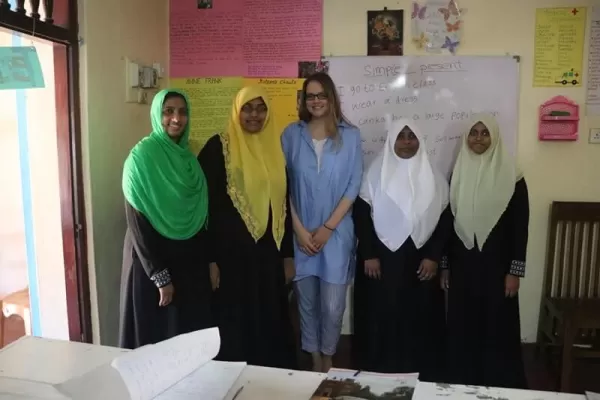
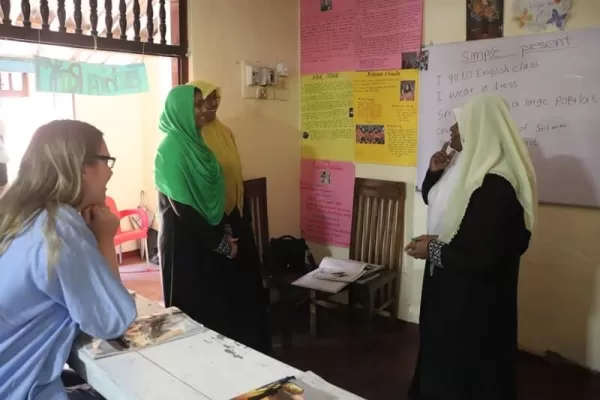
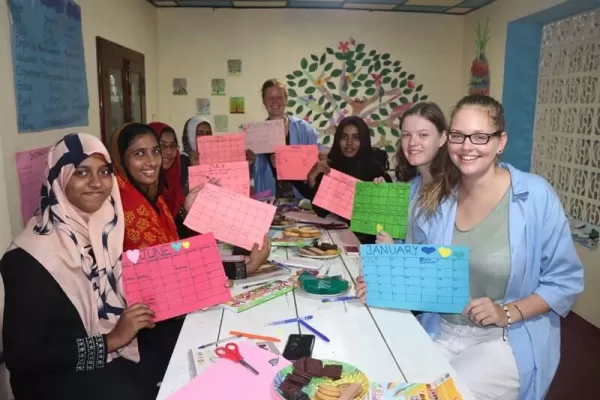
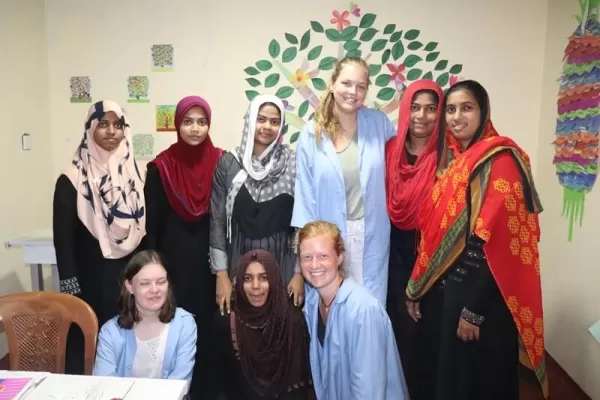
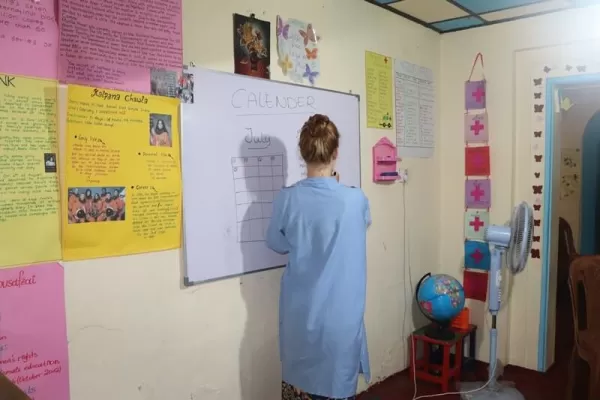

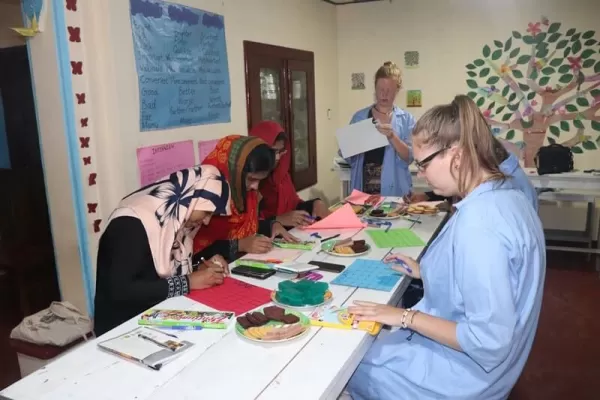
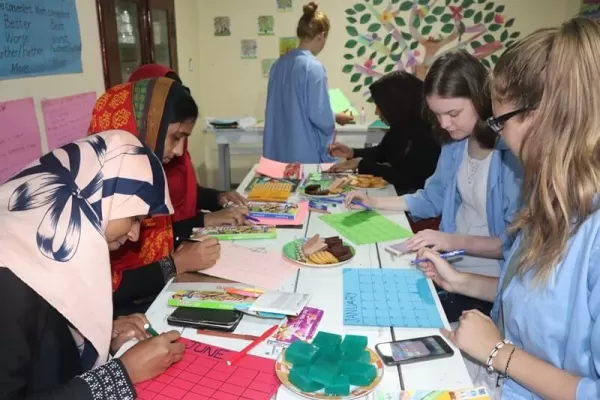
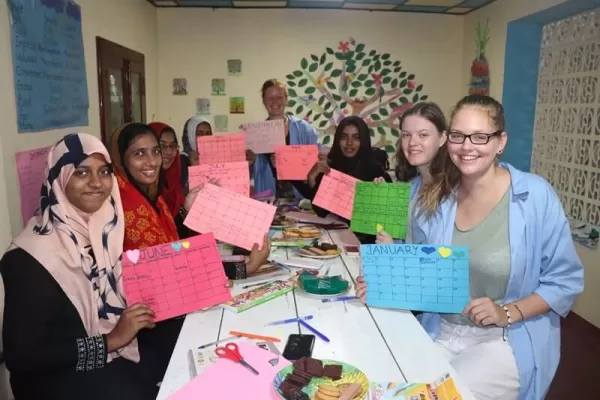
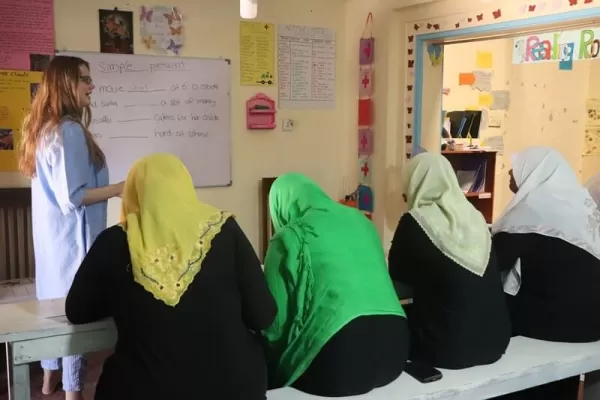
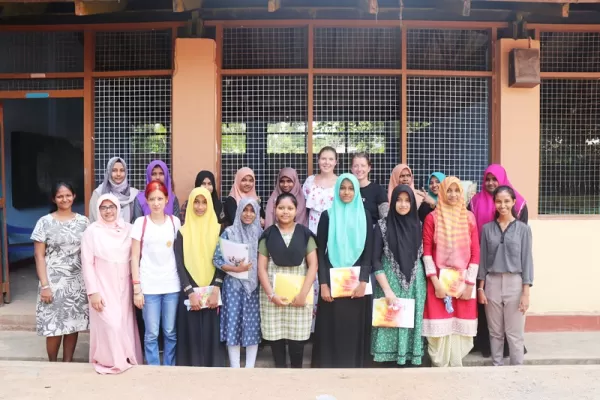
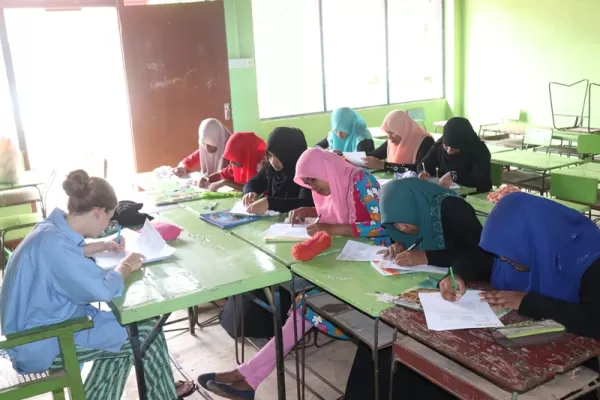
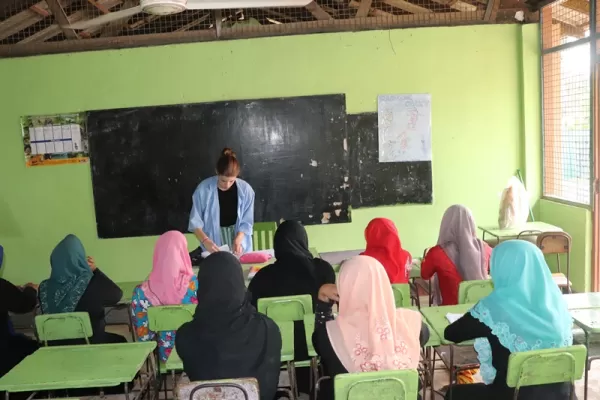
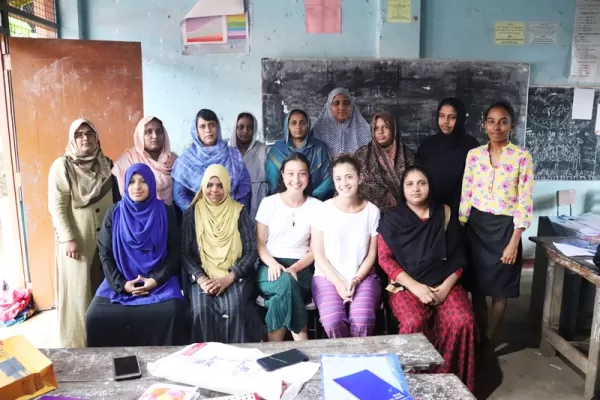
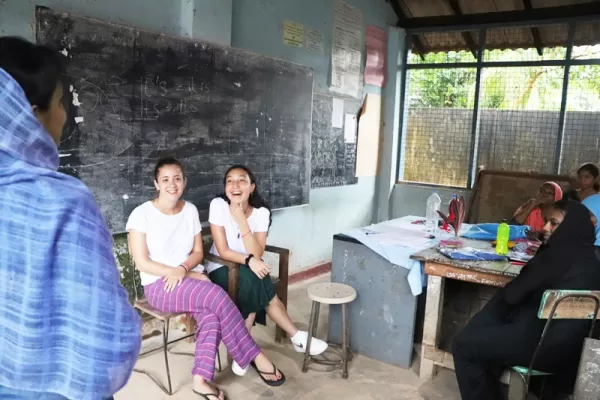
Living
Living

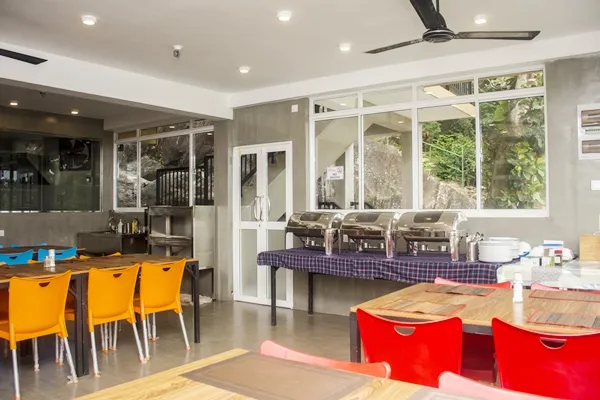
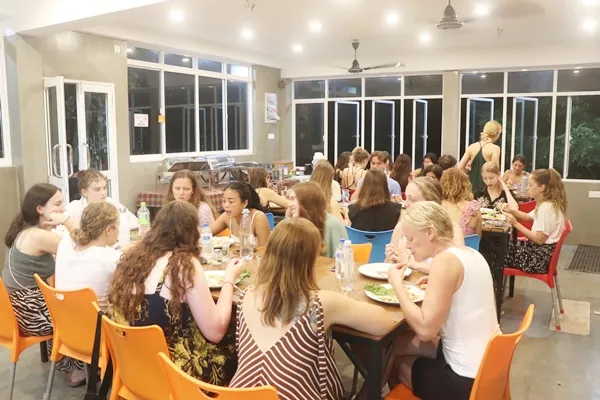
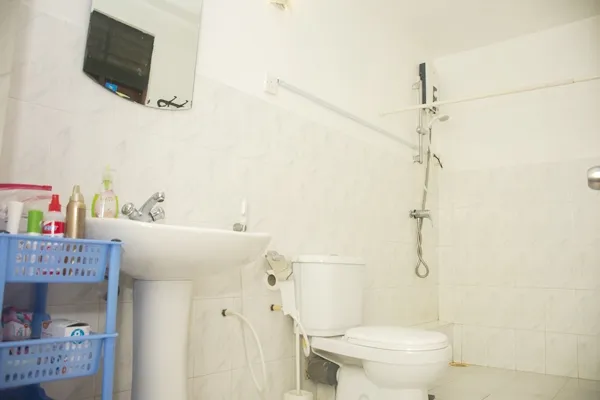
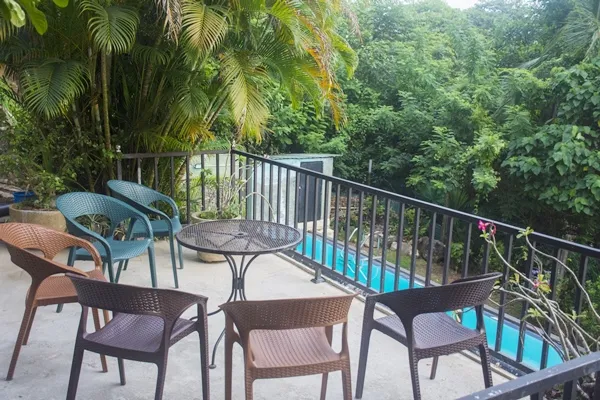
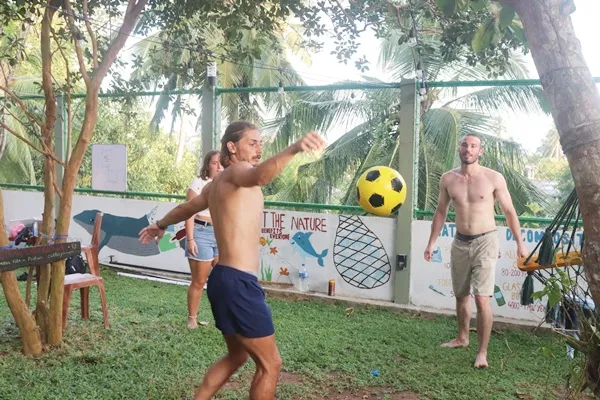
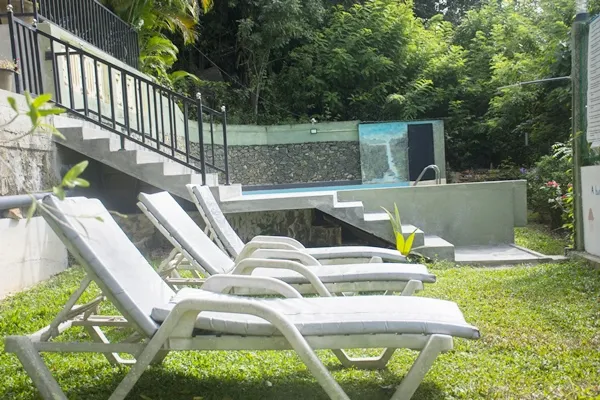
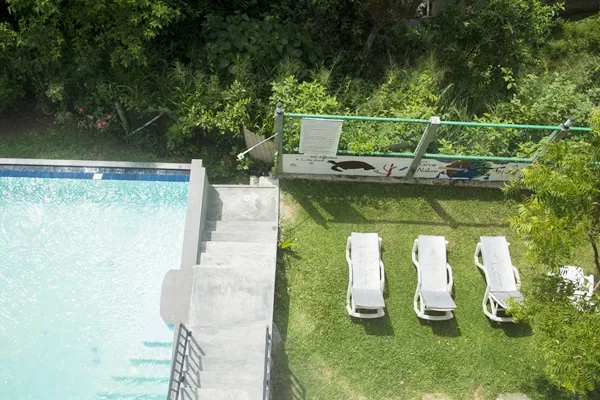
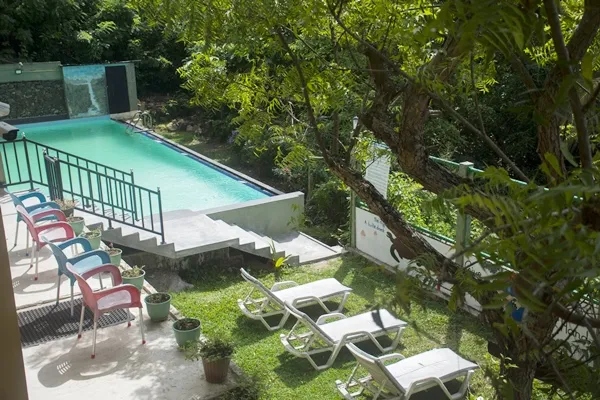
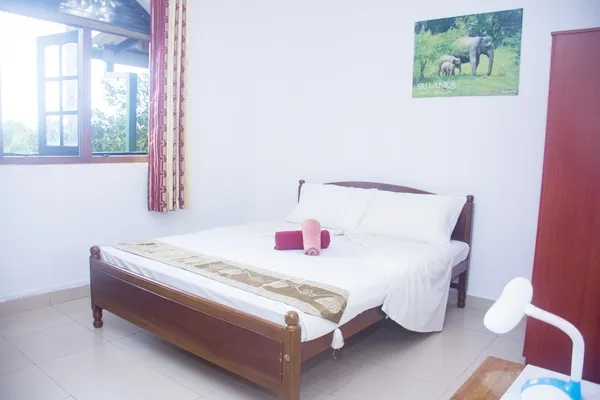




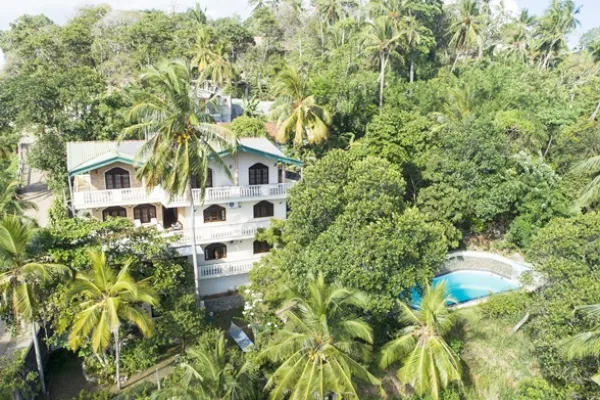

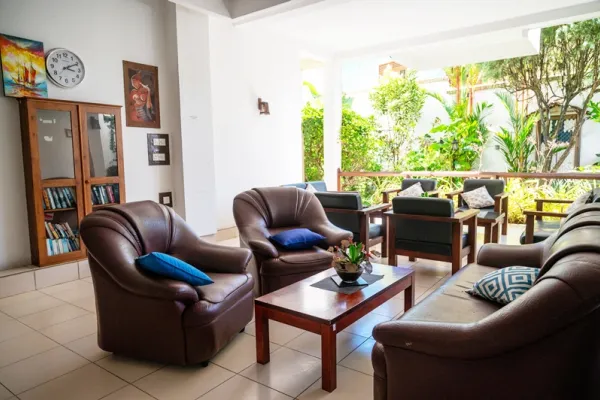
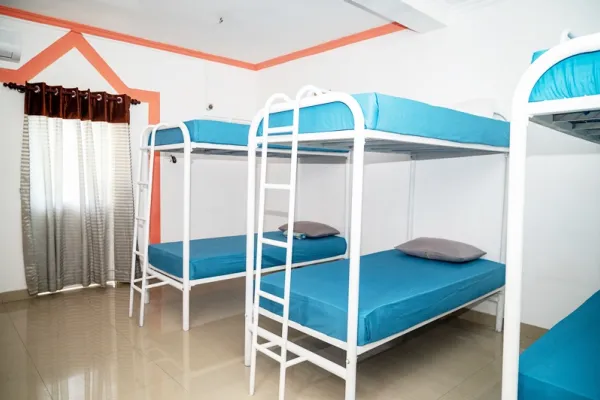
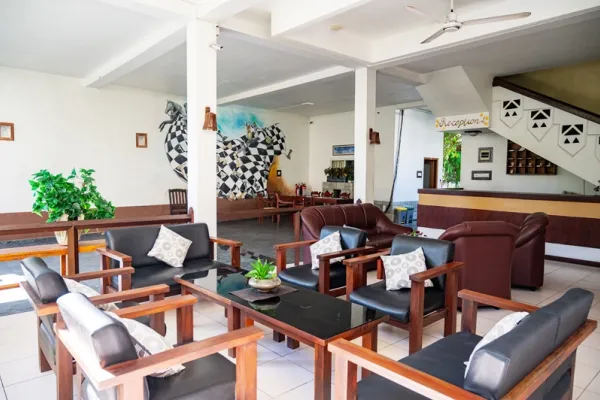
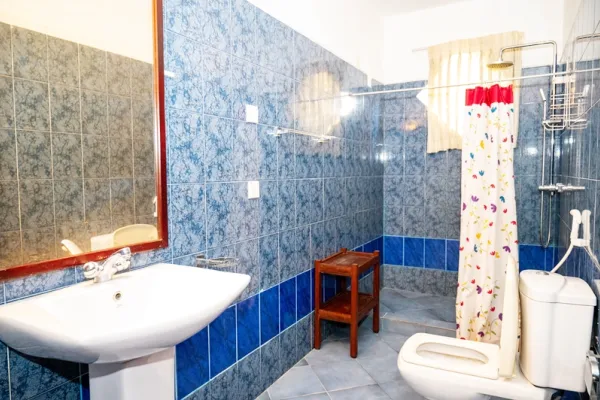
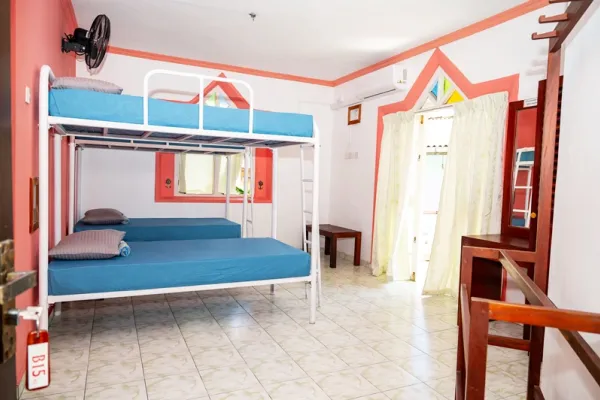
Dates
Dates
January
18
25
February
01
08
15
22
March
01
08
15
22
29
April
19
26
May
03
10
17
24
31
June
07
14
21
28
July
05
12
19
26
August
02
09
16
23
30
September
06
13
20
27
October
04
11
18
25
November
01
January
17
24
31
February
07
14
21
28
March
07
14
21
28
April
04
11
18
25
May
02
09
16
23
30
June
06
13
20
27
July
04
11
18
25
August
01
08
15
22
29
September
05
12
19
26
October
03
10
17
24
31
Available
Filling Fast
Booked Out
Costs
| Duration |
Program Fee
|
Choose your currency
|
|---|---|---|
| 2 Weeks | $835 | |
| 3 Weeks | $995 | |
| 4 Weeks | $1155 | |
| 5 Weeks | $1315 | |
| 6 Weeks | $1475 | |
| 7 Weeks | $1635 | |
| 8 Weeks | $1795 | |
| Extra Week | $250 |
Please Note: An application fee of is charged over and above the program fee as an application payment. A 5% international banking fee is charged for credit card payments of program fee in USD/AUD.
¿Qué estás pagando?
- Asistencia y soporte del personal las 24 horas
- Información completa previa a la salida
- Viviendas exclusivas para voluntarios con WiFi (habitaciones compartidas)
- Traslado compartido al aeropuerto a la llegada en los horarios designados por la mañana o por la tarde.
- Orientación y formación a la llegada
- Desayuno, almuerzo y cena todos los días.
- Colocación de proyecto garantizada
- Transporte local a proyectos en furgoneta privada con aire acondicionado o tuk tuk
- Equipo de operaciones bilingüe experimentado en el terreno
- Personal de soporte dedicado de 6:00 a 20:00 horas todos los días.
- Soporte de emergencia local 24 horas al día, 7 días a la semana
- Clase de yoga semanal en la terraza de la azotea.
- Noches de cine semanales en proyector de pantalla grande
- Recorrido mensual en bicicleta por los arrozales y pueblos locales
- Cena especial de barbacoa mensual
- Seguro médico y de viaje (disponible por un coste adicional)
- Certificado de participación (a solicitud)
¿Qué NO está incluido?
- Tarifa de visa
- Tarifa aérea internacional
- Traslados de ida y vuelta desde el aeropuerto de Galle al aeropuerto de Colombo (disponibles por un cargo adicional)
- Vacunas
- Cualquier gasto personal
- Excursiones y viajes locales adicionales
- Cargos por mejora de habitación privada
- Cargos por noches adicionales de alojamiento
FAQ's
Application and Program Details
-
How long will it take to process my application? Will my application be accepted?
-
After you complete your application, your personalized ‘My Account’ will be activated.You will need to upload your CV/Resume along with your photo in the same. Our backend team and the placement site takes around 10-12 days to review your application. After we review your CV and documents, your booking is confirmed and booking confirmation is updated in your ‘My Account’. Some projects need a mandatory criminal background check and the same is mentioned in the project info of your program. Approval of your application depends on your qualification and eligibility criteria for each project.
-
When do I need to arrive in Sri Lanka for my program? What will happen once I arrive in the country ?
-
All volunteers need to arrive at Bandaranaike International Airport (CMB) in Colombo, Sri Lanka, on the starting date of their project. Volunteers are picked from the airport by the local coordinator or representative and are transferred to their accommodations. Accommodation will be provided in the volunteer house located near your placements.
A short orientation is given after arrival about the city and placements. The volunteers are also taken for a short tour of Colombo before they start with their program. However, the tour depends on the arrival time of your flight. -
Are there any necessary requirements to participate in the Sri Lankan volunteer programs?
-
Below are the necessary requirements to participate in the Sri Lankan volunteer projects:
The minimum age requirement for the programs in Sri Lanka is 17 years.
Volunteers participating in the Medical Program should be at least 18-year-old.
Volunteers need to have an open mind and flexible attitude for working in a new and different environment. They should bring energy and enthusiasm to make a difference.
The participant must be in good health. -
Does VolSol provides discount if I choose more than one program or if I am a returning volunteer?
-
If you are planning to come for multiple programs in your trip, you will have to pay the application fees just once. Your application fee is valid for a year's time ( from the date of application). You will not have to pay the application fees again if you come within the mentioned time frame.
For our returning volunteers, $50 discount is provided for the application fee for their next VolSol program. -
Can I volunteer as part of a group?
-
We encourage our participants to volunteer in a group. We take special care in providing you a placement and also customize your itinerary to make sure you get exactly what you are looking for. Also, we can design special group programs for groups of 5 or more. Our programs are designed to be safe, affordable and offer a great group volunteering experience to the volunteers.
In our experience of more than 12+ years, we have enabled and facilitated volunteer program placements for college groups, university groups, high school groups, group of families, group of couples as well as groups of colleagues. -
When should I apply for the volunteer programs in Sri Lanka?
-
As we have limited spots available in our programs and we serve on first come first basis, it is recommended that potential volunteers book their programs well in advance to get confirmed placements. You can book your slot by filling the application form online and pay the application fee. You can pay your program fee later and also, in installments. However, the complete payment should be made 45 days prior to the starting of the program. If you are volunteering in a group, you can also fill a group application form.
-
Does VolSol provides with a reference or a certificate after program completion?
-
Yes, we will provide you with the Certificate after successful completion of your program. The certificate is provided on request.
-
For how many hours will I volunteer every day?
-
Volunteers usually work for 5 to 6 hours a day depending on their program. However, volunteers need to be flexible, open minded and understand that work requirements can alter at times.
Health and Safety
-
How safe is Sri Lanka in general ?
-
Sri Lanka is one of the popular tropical destination in Asia and attracts travelers from all around the world. The locals are friendly and helpful as well, however, it is recommended to consult your in-country coordinators before you step out alone or go to any other locations in Sri Lanka. Also, it is recommended to be with your group whenever you venture out or stay out late in the night. It is strongly recommended to follow the safety rules and regulations provided by the in-country coordinator.
-
What immunizations/vaccinations will I need?
-
We recommend you to consult your physician or travel doctor before traveling to Sri Lanka. However, we recommend you take general vaccinations such as:
Hepatitis A and B
Typhoid -
Do I need to buy a health insurance?
-
Yes, for all volunteers it is mandatory to have a travel medical insurance. To provide the best option to our participants, we offer comprehensive insurance coverage in collaboration with a leading insurance provider.
-
Are there any other things that I need to be careful about?
-
Considering the fact that Sri Lanka is a tropical country, the weather is mostly hot and humid. For people traveling from European and North American countries, it might seem to extremely hot during the days and sultry at night. We would advise you to consume a lot of water and protect yourself from the sun in whichever way possible. Carry an umbrella.
You can consult your doctor once, before traveling to Sri Lanka.
Accommodation and Living
-
Can I know more about accommodation and food arrangements?
-
Volunteers joining the programs in Galle, Sri Lanka, get to stay in the quaint Unawatuna neighborhood, overlooking the famous Unawatuna Beach and the turquoise waters of the Indian Ocean. Participants stay in one of the two volunteer homes located in close proximity to each other. The larger volunteer house has 13 bedrooms with ensuite bathrooms.Most of these rooms have ocean views! There's a private 40-foot outdoor swimming pool surrounded by tropical greenery. The house also has 3 kitchens as well as 3 living/common rooms (one each per floor), a prominent dining area, and a private outdoor garden with seating/lounging areas.
The office is located on the ground floor of the house near the main entrance – this is where the local team operate from every day. The house is located in a peaceful, nature-filled neighborhood adjacent to a small Buddhist temple (nestled away from the main tourist areas). To ensure the safety and security of the participants, there are CCTV cameras installed, and an in-house security guard for night-time surveillance. Hot water and high-speed Wi-Fi are there and you can opt for air-conditioning and laundry facilities at an additional charge.
Other than that, we also provide single/double/family private room upgrades at extra charges. The beach is just about 5 minutes walk from the stay and you can reach the Galle Fort in about 15 minutes.If you have special dietary requirements, please mention the same in your application form.
-
Are there more expenses once I arrive in Sri Lanka ?
-
Your program fee covers your accommodation, airport pick-up, orientation, pre-departure booklet, and 24x7 in country staff support. You will need to cover your personal expenses, such as traveling, telephone, the internet, shopping, sightseeing, return airport drop, weekend tours etc. You should carry around $50 - $60 per week for your basic personal expenses, such as water, local transport, phone etc.
-
Would I have free time during my program ? Can I do sightseeing during my program ?
-
Depending on your project placement, you will get free evenings and weekends to explore in and around the city. You can utilize the evening time to visit local markets and other places around your project location. Make the most of your weekends by exploring Sri Lanka to the fullest.
We encourage our volunteers to travel. We have designed various weekend tours which can be booked under the ‘Add-on Tours’ section in your ‘My Account’. Your in-country coordinator will also help you book and organize the tours once you are in Sri Lanka.
-
Where can I change my money in Sri Lanka ? Are there ATMs in Sri Lankan cities?
-
You can change money at any bank or at the airport by showing your passport. There are ATMs located all around the city (Galle, Kandy, Ambalangoda and Kegalle) as well.
-
Which all places can I explore during my trip?
-
Places like Sinharaja Forest Reserve, Rumassala Mountain, and Galle fort are major attractions in Galle, and Kegalle is a city of ancient architecture and natural beauty. Volunteers are free to plan quick getaways and explore Sri Lanka during the weekends.You can also relax at the beachside and enjoy the taste of the delicious seafood.
-
How do I get to the accommodation and the program location?
-
Your coordinator will meet you at the airport and will take you to your accommodation and introduce you to our team and other volunteers. You will then be provided with the orientation covering areas like culture, customs, safety, locations, placement, greetings, local transportation etc.
On the first day of work, the coordinator will guide you to your project site.
Flights and Visa
-
Will Volunteering Solutions help with Visa?
-
Volunteers traveling to Sri Lanka need to obtain an Electronic Travel Authorization (ETA) prior to their arrival or on their arrival in Sri Lanka. You can then obtain a Visa on Arrival in Sri Lanka for 30 days.
Volunteers can apply for ETA online and the approval of the same will be communicated via email.
Volunteers can be provided with the supporting documents if needed. More information will be provided once you enroll for the program. -
What are the recommended airlines to fly to Sri Lanka ?
-
The Bandaranaike International Airport (CMB) in Colombo is well connected with all major airports across the globe and flights are easily available. The recommended airlines are:
Srilankan Airlines
Air India
Mihin Lanka
Spicejet
Emirates
There are frequent in-country flights from Colombo to Galle and Kegalle as well.
Connect with Past Volunteers
-
How can I connect with past Volunteering Solutions Sri Lankan alumni as well as other former and current volunteers ?
-
We encourage volunteers to connect with former Volunteering Solutions participants and also other program participants joining our projects. You are recommended to join the Volunteering">https://www.facebook.com/VolunteeringSolutions/">Volunteering Solutions Facebook Page or Facebook">https://www.facebook.com/groups/volunteeringsolutions/">Facebook Group to connect with other participants and our team.
To read alumni interviews from past participants, visit the Meet">https://www.volunteeringsolutions.com/meet-a-volunteer">Meet a Volunteer section on our website


























